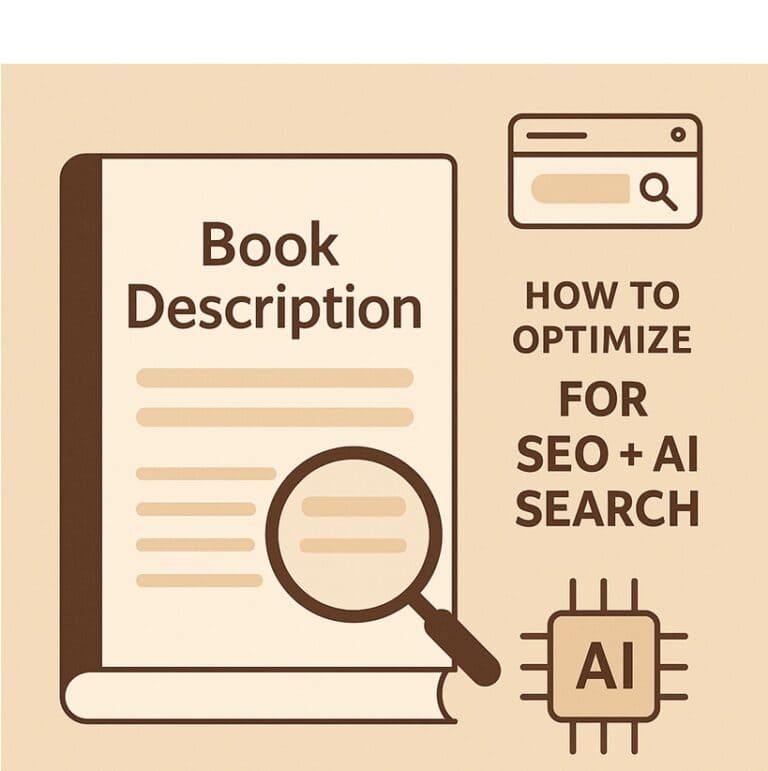7 Powerful Productivity Tips for New Authors

“Productivity isn’t about being a workhorse, keeping busy or burning the midnight oil…It’s more about priorities, planning and fiercely protecting your time.” – Margarita Tartakovsky
In our rapidly accelerating world, every new author knows the anguish of losing momentum amid distractions and drudgery. Yet momentum matters. Consistency breeds creativity. Volume hones voice. Finished drafts refine stories. Artificial intelligence propels new authors to powerful productivity by automating tedium and streamlining the writing process.
Imagine if you could use artificial intelligence to enhance your writing skills and boost your writing career. That’s what this multi-part series will show you, by revealing the secrets of how AI can transform your writing process. Whether you want to unleash your creativity, optimize your business operations, or increase your productivity, career growth, and impact, you’ll find valuable insights and tips in this series. As technology evolves rapidly, you need to stay ahead of the curve and harness the power of AI for your writing journey.
This series of guides covers key realms from imagination to enterprise, and it helps you reach more readers and do what you love. This part of the series explores emerging AI tools that help you focus on the craft while saving countless hours. Whether you are writing fiction or non-fiction, AI can be your ally in powerful productivity for achieving your writing goals.
An AI Assistant Understood My Quirks
I’ll never forget the day my AI assistant, Clara, scheduled six million meetings for me. Alright, maybe it was only six meetings, but it sure felt like six million. I had casually asked Clara to “schedule a few appointments today” without giving any other specifics. Off it went filling up my calendar. While a bit humorous and embarrassing, the incident showed Clara didn’t yet grasp my quirks as an easily distracted author. I realized I needed to better customize its settings and be more precise with instructions. With some tweaking, Clara now schedules only appointments to align with my writing blocks. Lesson learned!
Automating Project Management
Generating ideas and translating concepts into compelling narratives remains the pinnacle of human creativity. Yet many rote tasks stall authors on their way to these peaks. AI now provides sherpas to guide new authors up their mountains.
Juggling deadlines, edits, and publishing steps for multiple works in progress can overwhelm authors. Apps like Plottr include AI-powered project management features to streamline coordination. Authors detail key tasks, dates, and notes which Plottr’s AI organizes into process timelines. The AI even suggests reasonable deadlines based on task complexity and integrates them into an author’s existing calendar. By automating coordination, authors stay focused on writing.
Plottr also uses machine learning to uncover bottlenecks in a project plan based on an author’s unique working style. The AI highlights areas where extra time may be needed so authors can adjust timelines before falling behind.
Intelligent Writing Assistants
While pure AI content generation remains controversial for many reasons, a lot of authors use AI writing assistants to boost their productivity. Apps such as Grammarly, ProWritingAid, and ClearVoice provide AI-powered grammar checking, style suggestions, and light editing to help authors polish drafts faster.
For example, you can paste a draft text into Grammarly which highlights grammar errors, provides recommendations for concise writing, and suggests word choice tweaks to simplify editing. ProWritingAid goes further by analyzing readability, pacing, repetitiveness, and other stylistic factors.
Such AI tools amplify your efficiency in refining your distinctive voice and stories. The tools target rote tasks to free up mental energy for the creative process.
Automating Research & Outlining
Discovering supporting ideas and structuring compelling narratives are core to a new author’s success. Tools such as Articoolo use AI to speed up these steps. You provide a rough draft or general topic, and Articoolo’s algorithms identify high-potential content gaps. The AI then rapidly combs millions of online sources to find relevant statistics, examples, quotes, and studies matching the theme which writers can integrate.
For outlining, you can feed Articoolo a draft, and its AI will create an outline summarizing key points, allowing you to ensure logical flow.
Saved Time Enables Imagination
By employing AI to tackle tedious tasks such as scheduling, project management, light editing, research, and outlining, you have more time to empower your imagination. Hours saved from drudgery convert into flights of creative fancy. You can produce more works resonating with your distinctive voice.
The Future of Augmented Writing
As AI capabilities expand, authors combining human creativity with machine productivity will write abundantly impactful stories limited only by their vision.
AI will handle maximizing writing pace. You lead where AI can’t. You lead towards truth, compassion, and the human experiences of endless complexity. Together, writers and technology will journey farther.
TIP: For more tips on productivity with AI, read Boost Your Writing Productivity with AI: 5 Best Tips.
Powerful Productivity Wrap-Up
Writing remains an inherently human endeavor, one AI can’t currently replicate. Yet artificial intelligence empowers authors to focus on where humans uniquely excel: imagination, meaning, and connection. AI can eliminate bottlenecks for peak creative flow.
By employing tools such as project management aids, intelligent writing assistants, research apps, and outliners, you can conserve time for your true purpose of transforming lives with story and solutions to problems. You can write faster, research broader, and polish sharper.
Productivity and creativity thrive in harmony through an AI-augmented writing process. You can reach new heights in your writing journey by wisely leveraging artificial intelligence as an empowering partner—not a displacing force. The future is abundantly human, only unfoldingly faster and richer.
In this series, starting with “The Power of AI: Promise and Peril for New Authors,” we’ve looked at various aspects of using AI as writers. We’ve explored how AI can be both a friend and a foe, depending on how it’s used. It can help boost your creativity, productivity, and impact. But it can also pose some risks, which must be managed. That’s why, in this series, we cover a variety of topics about AI and authors.
We hope the exploration into AI for new authors helps you make informed decisions about using AI with your writing process.
In this guide, we’ve explored how AI can affect your productivity. We hope you’ve gained useful insights and tips to make the most of AI and reach more readers, without losing your voice or your values. As humans, we’re the ones who can shape technology for good. Let’s do it together!
Writing is a journey of continuous learning and growth. We’re eager to continue the journey with you, providing guides and encouragement every step of the way. Our goal is to provide basic insights and practical advice to help you navigate the writing world with growing confidence.
Don’t wait. Start today!
How can we help? To let us know, please fill out our contact form. Happy writing!
FAQs
1. What are some risks of relying on AI productivity tools?
While AI aids like writing assistants and outliners boost efficiency, authors should beware of over-relying on these tools. Maintaining creative control and oversight is key. AI should enhance, not drive, your writing process.
2. Can AI really help creative writing too, not just non-fiction?
Yes! AI tools aid fiction authors through idea generation, genre, and trope analysis to add twists, create outlines, character naming, and more. AI can help you overcome writer’s block. But human creativity remains essential.
3. How could AI project management tools backfire?
If not customized properly, AI productivity apps could create over-scheduling rather than optimizing time use. We suggest starting slowly with new tools and tweaking their settings for personal needs before fully integrating them.
4. Should I use an AI writing assistant for editing early drafts or final drafts?
Use AI writing assistants such as Grammarly or ProWritingAid during early drafts to easily catch basic errors and improve style faster. Reserve final edits for human editors, who can provide more nuanced and meaningful feedback.
5. How much time could AI tools realistically save authors each week?
The time saved depends on how extensively you use AI capabilities. But time savings may range from 5-15+ hours per week on reducing tedious tasks such as scheduling, edits, research, and project management. That’s hundreds of hours per year to focus on your creativity.

